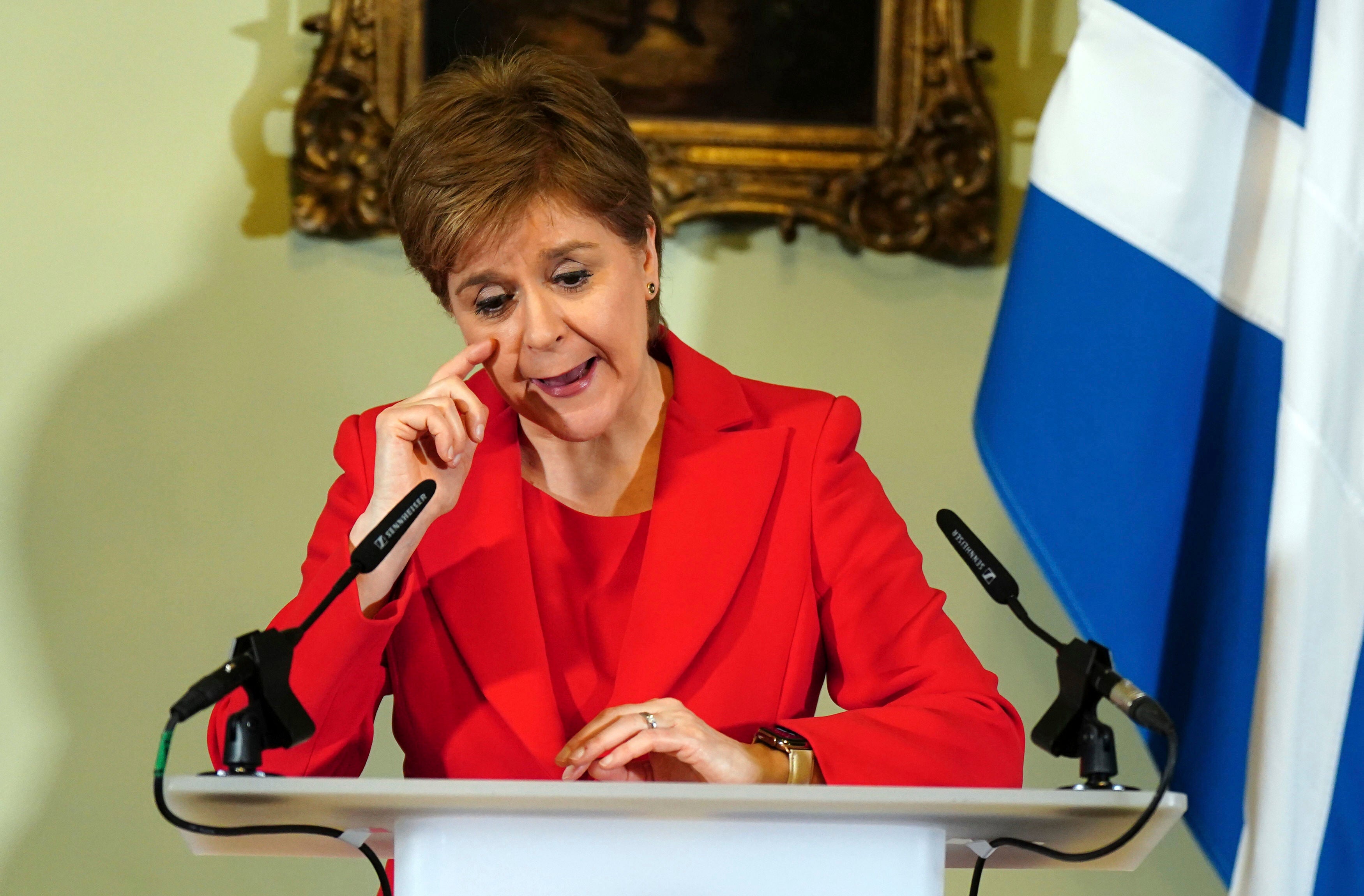Would-be Scottish leader under fire over gay marriage stance
A front-runner to become Scotland’s next leader is fighting to keep her campaign alive amid a backlash over her opposition to same-sex marriage

A front-runner to become Scotland’s next leader fought to keep her campaign alive Tuesday amid a backlash over her opposition to same-sex marriage.
Scottish Finance Secretary Kate Forbes, who belongs to the evangelical Free Church of Scotland, said Monday that her faith would have prevented her from voting in favor of allowing same-sex couples to wed.
Forbes, 32, was not yet a lawmaker when the Scottish Parliament legalized same-sex unions in 2014.
On Tuesday, Forbes added that having children outside marriage “would be wrong according to my faith.”
Forbes had been considered a favorite to replace First Minister Nicola Sturgeon, who announced her resignation last week after eight years as leader of the governing Scottish National Party. Several SNP lawmakers withdrew their support from Forbes following her marriage comments.
Forbes said Tuesdayshe was continuing her campaign “at the moment.”
“I understand people have very strong views on these matters,” she told the BBC. “I think the public are longing for politicians to answer straight questions with straight answers, and that’s certainly what I’ve tried to do."
Forbes said she would “defend to the hilt everybody’s rights in a pluralistic and tolerant society, to live and to love free of harassment and fear.”
She said she would not seek to change the marriage law if she became leader because “equal marriages is a legal right, and as a servant of democracy, rather than a dictator, I absolutely respect and defend that democratic right.”
Scottish Health Secretary Humza Yousaf, a rival for the leader’s job, was among those criticizing Forbes.
“I’m a supporter of equal marriage,” Yousaf told radio station LBC. “I’m a Muslim. I’m somebody who’s proud of my faith. I’ll be fasting during Ramadan in a few weeks’ time. But what I don’t do is, I don’t use my faith as a basis of legislation.”
Forbes, Yousaf and legislator Ash Regan are running to replace Sturgeon, who has dominated the Scottish National Party for almost a decade but failed realize her dream of leading Scotland to independence from the United Kingdom. A winner of the leadership contest is due to be announced March 27.
British politicians have often tried to avoid the subject of their personal religious beliefs.
Former Prime Minister Tony Blair was reticent while in office about his Christianity. His spin doctor. Alastair Campbell, once shut down a journalist's question about Blair’s faith with a brusque: “We don’t do God.”
Blair, who converted from the Church of England to Catholicism after leaving office in 2007, said he avoided talking about his faith out of concern people would think we was a “nutter.”
Tim Farron, who led the centrist Liberal Democrats between 2015 and 2017, was dogged throughout his term by questions from journalists about his attitude to LGBTQ rights after he failed to deny that he considered homosexual sex a sin. He later clarified he does not think same-sex relations are sinful.
A spokesman for Prime Minister Rishi Sunak, the U.K.’s first Hindu leader, said Tuesday that Sunak was “hugely proud of the U.K. being a diverse and tolerant country.”
Spokesman Max Blain said Sunak didn’t want “anybody in Britain to have to hide who they are or who they love.”
Bookmark popover
Removed from bookmarks